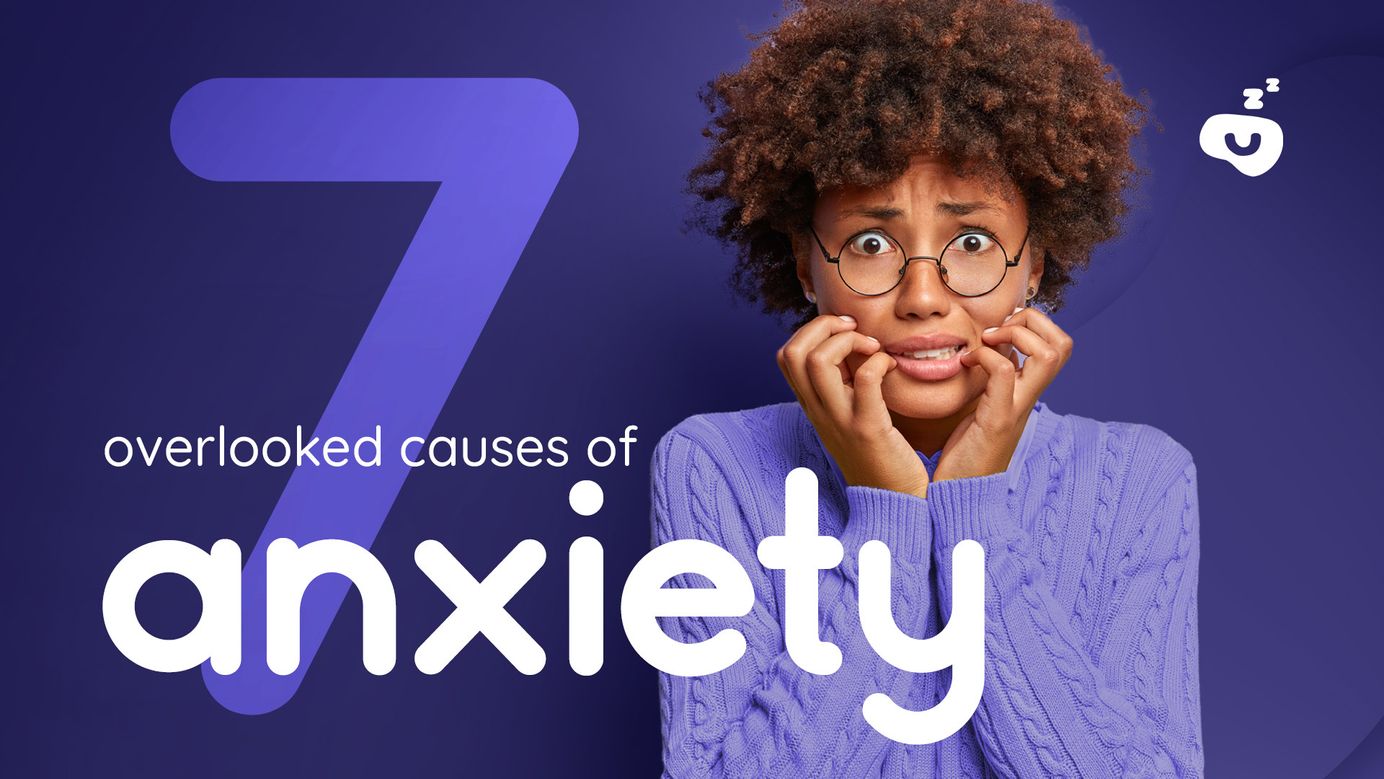
7 Overlooked Causes of Anxiety
We all experience anxiety and depression at different points in our lives. This can be related to work, family, financial hardships, or a combination of these things.
Table of Contents
We all experience anxiety and depression at different points in our lives. This can be related to work, family, financial hardships, or a combination of these things. To some degree experiencing anxiety and depression is a natural part of life. For many people, however, these feelings are pervasive and ongoing. And for those of you who suffer from anxiety or depression you’ve probably been told by your doctor that it’s due to a chemical imbalance in your brain. While, this could be an indicator, Unfortunately, most doctors don’t dig deep enough to find out what may be the real cause. That being said, It’s important to understand the factors that lead to this.
Trauma, genetics, substance abuse, and chemical imbalances can affect brain functioning. Seasonal changes and the amount of sunlight we get every day can alter our mood. The relationship between body and mind is complicated. When reflecting on what it is that gives us anxious or hopeless feelings, we may jump to obvious causes such as work and family-related stress or maybe what’s happening in the world. There are other factors involved as well. A poor diet, gut problems, a vitamin or iron deficiency, excess alcohol consumption, and yes, our genes can all contribute to increased feelings of anxiety and depression.
Here are 7 causes of anxiety and depression that may be overlooked:
1) Vitamin B12 Deficiency
Vitamin B12 helps our bodies make DNA, red blood cells, and serotonin—an important neurotransmitter believed to play a role in our feelings of wellbeing. It makes sense then that a lack of B12 could lead to feelings of anxiety and depression. A B12 deficiency is more common in adults and the elderly, but in one study a teenaged male’s mood swings and regressive behaviors were linked to a B12 deficiency. This research shows that a diet that includes B12-rich foods is important to our mental health. B12 is found in meat, poultry, eggs, fish, and dairy products. Vegetarians and vegans can get B12 by eating foods supplemented with B12 and by taking supplements. Another study examined the relationship between Vitamin B12 and Depression by following 115 people with depression for six months only to find that those with higher levels of B12 had a greater chance of recovery. This finding led scientists to believe there is an association between B12 and mental health.
2) Insufficient Vitamin D
A thorough review of studies analyzing depression and vitamin D concluded that lower vitamin D levels were found in people with depression compared to controls. But if you take a closer look, most people associate low vitamin D with wintertime and seasonal depression, but it can hit at any time of year. Lifestyle factors, namely sunlight exposure, diet and use of supplements, are well recognized major determinants of vitamin D levels, and chances of you being deficient in Vitamin D, despite living in the sunny SWANA region, is 30–90%, depending on gender, season and lifestyle pattern.
But how does this link to anxiety?Elevated anxiety levels and depression have been linked to insufficient levels of vitamin D. Vitamin D is important to brain development and in regulating our immune systems, and it also helps our bodies absorb calcium and promotes healthy bones. Lower levels of the vitamin have been linked to depression, anxiety, and even schizophrenia.
Like B12, vitamin D, is obtained through a diet that includes meat, eggs, fish, and dairy products or by eating fortified foods or taking supplements.
3) Thyroid Issues
The thyroid gland produces two hormones (thyroxine, and triiodothyronine) that regulate our metabolism, helps our bodies develop, and controls many of our bodily functions. When the thyroid gland is not working properly this can lead to emotional and cognitive problems. Studies have shown higher numbers of mood and anxiety orders in people with thyroid dysfunction. Patients with acute hypothyroidism suffered from some form of anxiety disorder in between 30 and 40 percent of cases studied.
One way to promote thyroid health is by getting enough vitamins C and D and all eight of the B vitamins. This can be done through diet, supplements, or a combination of the two.
4) Iron
Iron is essential for several vital functions including the flow of oxygen throughout our bodies. It also aids cellular respiration and DNA synthesis. An iron deficiency can affect memory and learning capabilities and trigger emotional problems. The way iron is metabolized in our bodies affects our ability to regulate neurotransmitters, proteins, and stress response.
Eating iron-rich foods such as beans, nuts, seeds, and dark leafy vegetables is a way to promote better metabolism and help prevent feelings of depression and anxiety from becoming pervasive. Eating fortified cereals and taking iron supplements can help as well.
5) Blood Sugar
Diets that have a high glycemic index or are high in refined carbohydrates have been linked to depression and anxiety. Eating foods that contain a lot of sugar or refined grains such as white bread, pizza, pasta, and pastries can negatively impact both physical and mental health. Limiting these foods and adding protein, fat, and fiber to your diet can decrease symptoms of anxiety.

6) Genetic Makeup
It is now accepted science that our DNA makes us predisposed to certain conditions, but recent studies have shown a link between genetic makeup and the risk of anxiety and depression disorders. One particular study found that a reduction in the enzyme methylenetetrahydrofolate reductase (MTHFR) plays a role in some psychiatric diseases. A reduction of MTHFR activity and the DNA methylation process can lead to feelings of anxiety and depression. Folate supplements are believed to be an effective way to treat patients with disorders caused by reduced MTHFR activity.
7) Gut Health
We cannot stress this enough, but the bidirectional channel between your gut and brain, or better known as the gut-brain axis, is being studied thoroughly and a lot of interesting new findings are emerging from this connection. A plethora of research led us to understand the implication this two-way channel has on our mental health. To learn more about the gut brain-axis and its relationship to anxiety click here. Tip: cleansing your gut, eating clean and including probiotic-rich foods are key factors in promoting gut health.
provin.me | blog Newsletter
Join the newsletter to receive the latest updates in your inbox.





